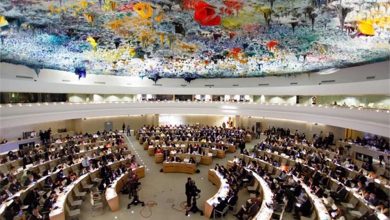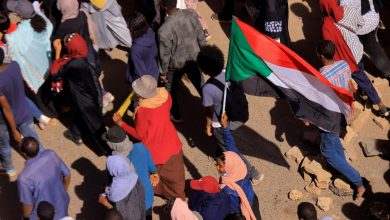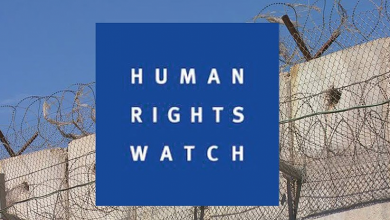Saudi Arabia: executions entrench sectarian discrimination against Shiites

The Gulf Institute for Democracy and Human Rights (GIDHR) denounced the Saudi authorities’ continued perpetration of executions that deepens sectarian discrimination against Shiite citizens.
The centre said that the Saudi authorities’ continued execution of the detainees in the Qatif region confirms the sectarian discrimination faced by Shiite citizens in the Kingdom, despite the Kingdom’s legislation and regulations criminalizing all forms of racial discrimination.
The centre condemned “a new crime added to the Saudi authorities’ record of violations after the Ministry of Interior issued a statement acknowledging that it had executed prisoners of conscience, Hussein Ali Al Abu Abdullah and Muhammad Khader Al-Awami.”
The centre stated that the execution by the Saudi authorities of the aforementioned detainees by beheading is a flagrant violation of international law, as their crime was nothing but the exercise of their legitimate right of expression and demand for their legitimate rights to a decent life, equality and freedom.
A new crime was added today to the #Saudi authorities' record of violations, after the Ministry of Interior issued a statement acknowledging that it had executed two prisoners of conscience Hussein Ali Al Abu Abdullah and Mohammad Khodor Al-Awami. pic.twitter.com/5Ulv8tkHAS
— GIDHR (@gulfidhr) May 14, 2022
A few days ago, seven experts at the United Nations said that the Kingdom of Saudi Arabia is obligated, according to its commitments, to prohibit and implement the death penalty for all crimes committed by minors under the age of 18 at the commission of the crime.
In a letter they sent to the Saudi government, the special rapporteurs emphasized that Article 37 of the Convention on the Rights of the Child, which Saudi Arabia ratified in 1996, obligates it to protect all children from this punishment and obliges it to treat every person under 18 as a child.
The Special Rapporteurs stressed that children should not be subjected to the death penalty or arbitrary detention. These practices violate existing rules of customary international law and render the punishment tantamount to torture.
The letter welcomed the release of the minor Daoud Al-Marhoon, who had previously been arrested and sentenced to death before the sentence was changed to 10 years.
The rapporteurs indicated that al-Marhoun had confirmed that he had been subjected to torture, which must be fully investigated. They also stressed the importance of bringing to justice those responsible for the violations he was subjected to and giving him access to redress, compensation, and rehabilitation.
The rapporteurs urged that the release of the pledged help give impetus to an unambiguous and verifiable end to the continuing practice of sentencing minors to death.
The rapporteurs called on the Saudi government to prohibit the death penalty against children for all crimes, including those punishable by Qisas and Hadd punishments.
The European Saudi Organization for Human Rights confirmed that Saudi Arabia still threatens to execute minors with penal provisions prohibited under the Juvenile Law. It continued issuing death sentences with Qisas and Hadd, which contravened the Convention on the Child’s Rights.
The organization indicated that Saudi Arabia threatened to apply the death penalty against five children, including the minor Abdullah Al-Hwaiti, who faces a death sentence. The other four are facing a demand from the Public Prosecution to execute them as a punishment.
It also confirmed that Saudi Arabia is manipulating the file of the execution of minors, through rulings and manipulation of ages, in an attempt to mislead the international community.
The human rights organization warned of the lack of accountability for those responsible for the violations and torture of minors.





